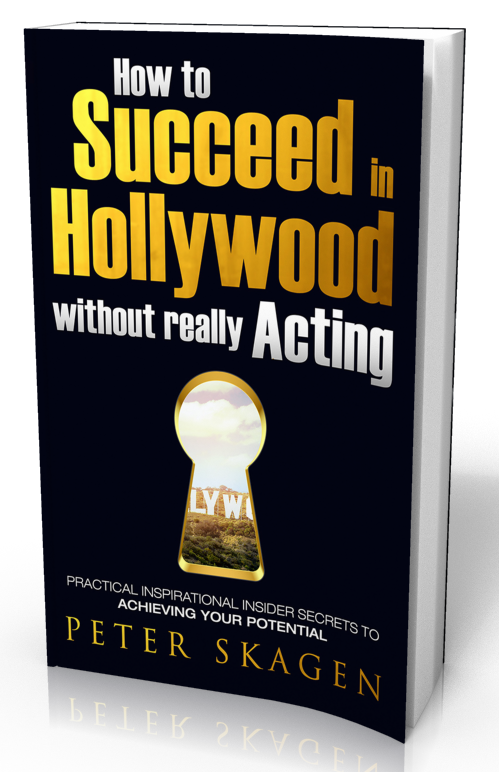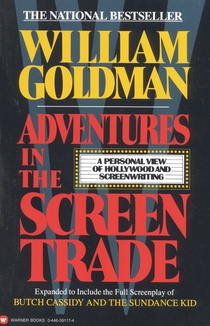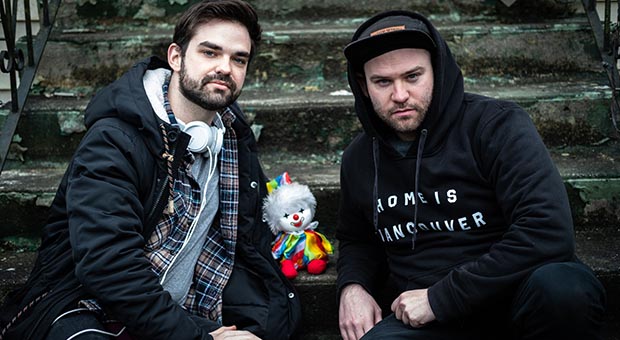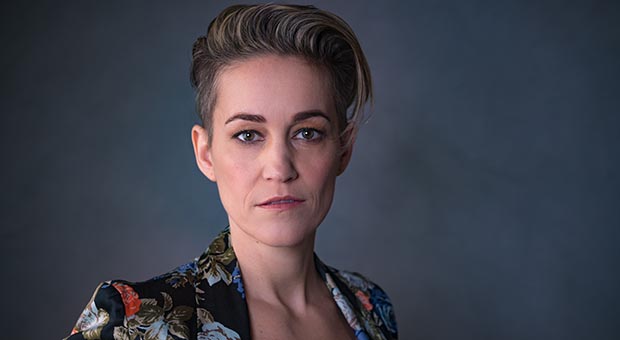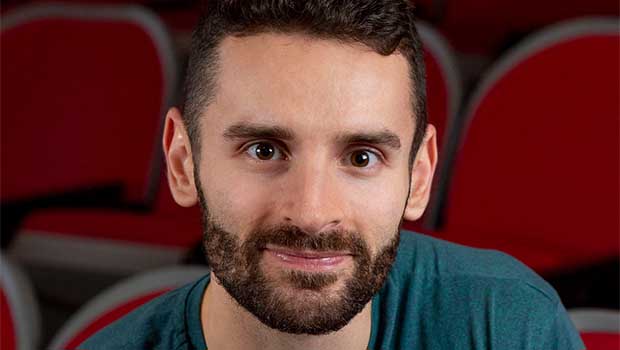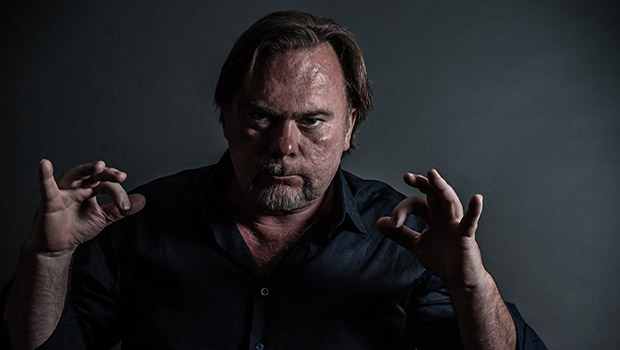
11 Aug The Biz Interview: Peter Skagen
A working actor, writer, producer and un-acting coach shares with you the inside secrets of how to master the screen actor’s career in the twenty-first century…
This is the pitch for How to Succeed in Hollywood Without Really Acting, the new book by actor, coach, and now author Peter Skagen which taps into his many years of industry experience and conveys his wisdom in ways that are inspiring, informative, and practical for today’s actors.
We spoke with Peter Skagen to give you a peek into his experiences in the industry, the insights waiting inside the book, and to find out more about just how to succeed in Hollywood without really acting.
________________
What was your inspiration for writing How to Succeed in Hollywood Without Really Acting?
I came to feel I was done with acting after 35 years and as many movies, and wanted to summarize everything I learned, without any agenda, into a book that would actually be useful, honest and hopefully inspiring. It became a kind of thesis project, or maybe a letter to the young me. Before it was even finished, it started taking on a life of its own. I got a call from the Dean at the University of Lethbridge, whom I know, asking if the book was done. I told him it wasn’t. He said ‘we’ll take it anyway.’ They’re still using it, and since then, I’ve just been hanging on as it grows. I get glowing reviews from casting directors all the time, and I’ve won a couple major book awards already. I won Best Book in Performing Arts in California for 2015, and I’m a finalist in the Foreword Indie book awards, which is like the Oscars for indie books.
What are some of the recurring lessons that readers will learn from reading it?
Wow. Well, there are a lot. First of all, I think you need to be called to it. Most successful actors I know can point to the very moment they woke up to themselves as actors. That inspiration has to be strong enough to carry you to the bitter end, so it has to be huge. Then, they have to know how the Biz works so they’re not going in blind. Most actors take about 10 years just to figure out how it all works, so I want to save them that time. Then story. Story, story, story. And craft. Technique. Nuts and bolts how to do the job. Craft is the difference between working actors and wannabes. Finding their brand, or signature character is crucial. Then they need to know how to package and sell it. And then it’s all about the audition. Probably 98% of actors fail badly in the ‘room’ cause they don’t know what they’re doing; they think it’s about acting. If they really take in all the secret info in the book on the audition process, they’ll never go wrong.
How to Succeed in Hollywood Without Really Acting
What do you think the biggest mistake is that new actors and performers are making when they try to enter the industry?
Giving it a try is the first mistake. If you’re trying to be an actor, you should maybe move on. You have to know. You should have a ton of raw talent and unshakeable faith to start with because those things will be assumed throughout your career and you have to deliver them time and again without fail and without notice. You gotta have the goods off the top. If the industry–not necessarily acting coaches, but industry people like casting directors–if they respond to you early, that’s a good sign. Love is another problem. Many actors come to it thinking they’ll get love and admiration and all their problems will be over. The Biz will never give you those things.
Who are the people that are going to get the most out of reading the book and applying the knowledge that you are sharing?
Anybody coming up, their parents, college students and professors, coaches and teachers, stage actors, comics, singers, anybody planning on moving to Los Angeles or New York to get into it, writers are loving the book, and you wouldn’t believe how many working actors in the Biz contact me saying how much the book helped even them. Also, anybody who’s just plain interested will find the book very easy to read and very informative. I hear it called a page-turner a lot.
One of the themes of your book is the idea of not thinking like an actor, but instead thinking like a filmmaker. As you see them, what are the differences in how actors think vs. filmmakers?
Actors are all about themselves. Filmmakers are about story, financing, making the day, and making a dollar at the end of it all. They look for actors who understand their pain, and know how to help out in all those ways, and many others. The acting is only a small percentage of the job. Example: do you know how to talk to a potential investor in the movie in question? If the answer is no, you have learning to do.
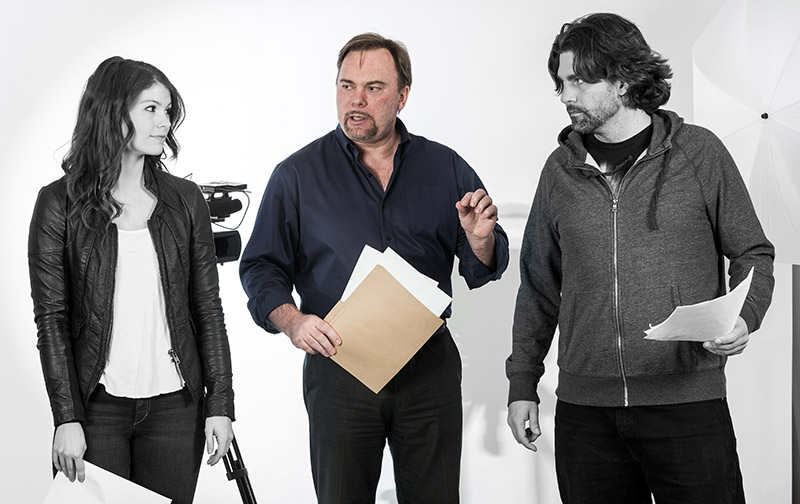
What inspired you to get into the film industry?
I started writing plays when I was about 9. I made a movie when I was 14. It was just always in there.
How would you describe the state of the film industry now? How has it evolved since you first became involved and where do you see it going?
This is a huge question which I address in the book. I’m not a Hollywood insider by any means, but it’s clear that the actor has to think about his or her career more like a band does these days. You have to become successful on your own. It’s all about your social media following, your YouTube presence and so on. And your knowledge and skill of the Biz, and ability to join the party seamlessly without having to be a beginner (somehow). I came up during the ’80s, before the internet. One of my classmates said she was thinking of getting into a new thing called rock videos. Movie stars were really movie stars, and it was all about movies. Nowadays, if you tell an agent you want to be a movie star, he might drop you. There’s no money in it. The big corporations running the studios don’t even want stars. They want interchangeable young people as Spider-Man. They want sequels, and remakes, and animation, and knock-offs. The money is in television, and increasingly on the internet. So, a lot has changed. I see China becoming a much bigger player in the Biz, and I see the potential for a new renaissance of micro-studios making movies all over the world similar to Hollywood in the ’20s. The major studios will continue only with giant blockbusters leaving room for new moguls around the world to fill the gap, and distribute on the web.
What books have been influential to you in your creative journey?
I’ve read everything on the subject I think. I love the books of William Goldman – like Adventures of the Screen Trade – who wrote The Princess Bride and about 50 other major movies. That’s for story. Michael Caine’s book on acting – Acting in Film – is still one of the best. And I love True and False by David Mamet. Patrick Tucker’s book – Secrets of Screen Acting – is really good. And I would suggest reading books on film production including biographies, like The Kid Stays in the Picture by Robert Evans who produced The Godfather. And so on. You can’t read enough. And just really good fiction. One of the first books I ever read was The Three Musketeers by Alexandre Dumas. It became a movie in my head.
What other projects are you involved with right now?
I’m writing a sci-fi thriller to be shot in China in 2016. Right now it’s called Dead Still, but that title will change. It’s a little like Jurassic Park but the dinosaurs are something else, and much worse. And, crazy as it sounds, I’ve started writing a stage show based on the book. It’ll be a musical with songs like I Wanna Be Rich, Would You Like Cream With That (from the book) and Oh, my God, it’s Johnny Depp.
Where can people find out more about you and your work?
They can go to PeterSkagen.com.
________________
Our thanks to Peter Skagen for speaking with us! You can check out his book right here!
________________
Recommended Reading
[bscolumns class=”one_third”]
Adventures in the Screen Trade
William Goldman
[/bscolumns]
[bscolumns class=”one_third”]

Secrets of Screen Acting
Patrick Tucker
[/bscolumns]
[bscolumns class=”one_third_last”]
The Kid Stays in the Picture
Robert Evans
[bscolumns class=”clear”][/bscolumns]

